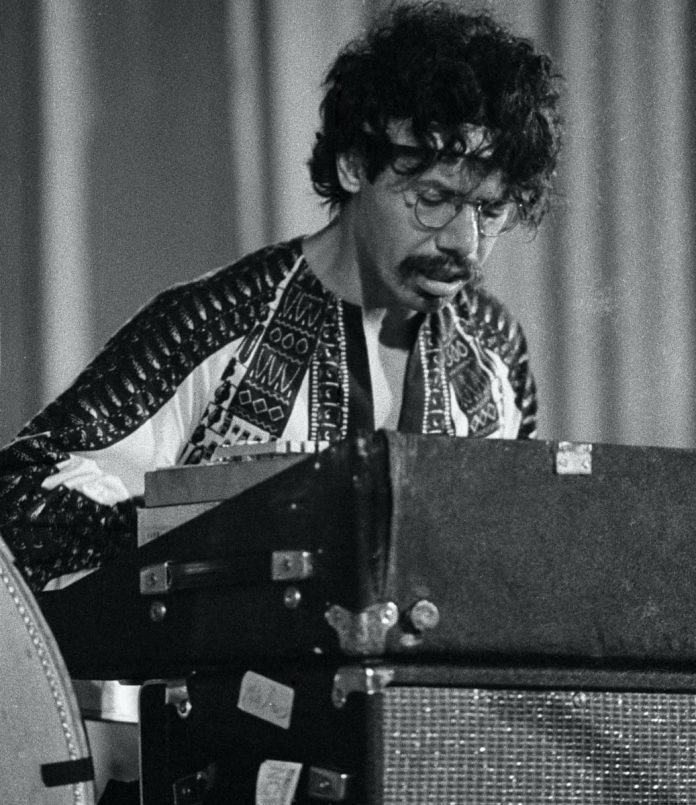Forever is an infinite period of time; when things are really going well you don’t notice the passage of time; so to acknowledge the satisfaction that his band feels when playing together, Chick Corea has called it ‘Return to Forever’. Well, all right . . .
If the band’s LP emphasises the happy lyrical content of the music, several club sets bring home their ability to play stimulating extended improvisations and, above all, swing like hell. Joe Farrell plays plenty of meaty tenor as well as the soprano and flute he features on the album, and his departure from the band is sad news as far as I’m concerned.
Flora Purim sang only two vocals during the two sets I caught, but was great on a variety of percussion effects that are normally the province of her husband Airto Moreira, who stuck to ordinary jazz drums the night I was at Ronnie’s. On these he was very impressive after a groove had been established, enabling him to play free and leave the time alone, but on the slow four of Noon Song he was sloppy rather than loose.
Bassist Stanley Clarke knows what to do in any situation: when necessary he has more than enough technique to play all over his instrument, but stayed uncomplicated on the driving fours.
As for the leader, he proved that touch, phrase shapes and sensitivity are the marks of an individual even on an instrument which has the reputation (quite undeserved) of reducing all its players to facelessness; but then I speak as an electric-piano fan, and Chick is one of its kings.
In support were Back Door, offering music which numbered Ornette, the blues tradition and just plain rock among its influences. The unpredictable twists and turns of the tunes played were enhanced by their comparitive brevity; the lads just got in there, said what was necessary, and got out again. Ron Aspery played fiery yet melodic soprano and alto and Tony Hicks drummed well, loose yet lifting, but the real mind-blower was Colin Hodgkinson, the most amazing bass-guitarist I’ve ever heard in my entire life.
He plays the thing as if it was an ordinary guitar, and after a couple of stupefying minutes of their first number he had me craning my neck to see if he was in fact playing a specially built instrument with extra strings; but no! He played chords that I’ve never heard anybody else achieve on this instrument, and broke things up with a solo version, complete with vocal, of Robert Johnson’s 32-20 Blues.
The group’s quite happy to continue to live in Blakey Ridge, North Yorkshire, and knock ’em dead round the local boozer, but they’re a treat not to be missed if they’re ever round your way.
















